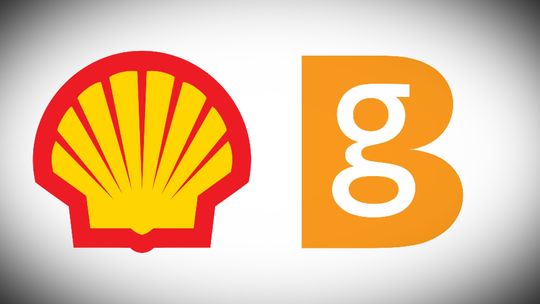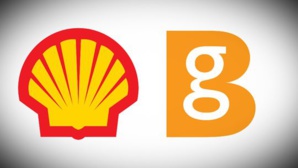It is expected that about 65 billion euros will be paid by the British-Dutch petroleum company Royal Dutch Shell for the British BG Group, which specializes in the production of natural gas. Given that the price of oil over the last year, which collapsed almost twice, caused the financial crisis in the entire field of oil and gas, the decision is considered to be premature by many experts. However, Weinberg, Head of the analytical department on the commodity markets at Commerzbank in Frankfurt, does not think so.
- At first glance, of course, these things contradict each other. However, when re-examinating, it becomes clear that due to poor baseline all is just very logical. To me, such transactions are a signal that it is the decisive moment for many businesses. On the other hand, some corporations want to take advantage of low prices and expect significant price growth in the long term. Businesses are investing their cash resources accumulated in recent years in order to overcome the crisis having become strong, - said Weinberg to DW.
As suggested by Weinberg, the current state of affairs in the field once again convincingly proved the old adage "the more, the better." Those companies, which spend money wisely and managed to save more than others having creating a great deal of the amount of financial reserves, go through a period of volatility during the time of low prices much more confident than the others.
- I remember well the phase of major mergers and acquisitions in the energy sector in the late 1990s. BP bought the North American concern Amoco. This was followed by Total company’s absorption of concern Elf Aquitaine. In those years, there was a significant oversupply of oil. Barrel was worth some $ 10. Uncertainty and fear dominated in the industry - said Weinberg.
Now the situation in the oil market is very similar to that. Firstly, there is obvious overproduction of raw materials in the context of a general economic downturn. Second comes the final stage of the settlement of the nuclear problem of Iran. In practice, this unleashes Iran and on the world oil market, stuffing of additional volumes of Iranian "black gold" may occur, as it will inevitably pull prices down. Nevertheless, in the long run, says Weinberg, the potential for a rise in prices is large enough, and this fact gives enough reason to invest in this sector. It is possible that in the near future, there will be a similar merger.
Together, Shell and BG are becoming one of the largest suppliers of decreased gas. According to Weinberg, we are watching a gradual shift from the principle according to which the price of gas is calculated from the price of oil, which in the future will lead to the emergence of a single gas market.
- Gas gradually gets free from oil quotations. On the one hand, there is still no single gas market, but on the other hand, I think that in the future it would appear. Therefore, I see a lot of potential in enterprises engaged in liquefied gas. For these companies, the gas component is a good addition to the general range of industries in which they are engaged, and with an eye to the future has already begun the battle for market share - says Weinberg.
source: DW.de
- At first glance, of course, these things contradict each other. However, when re-examinating, it becomes clear that due to poor baseline all is just very logical. To me, such transactions are a signal that it is the decisive moment for many businesses. On the other hand, some corporations want to take advantage of low prices and expect significant price growth in the long term. Businesses are investing their cash resources accumulated in recent years in order to overcome the crisis having become strong, - said Weinberg to DW.
As suggested by Weinberg, the current state of affairs in the field once again convincingly proved the old adage "the more, the better." Those companies, which spend money wisely and managed to save more than others having creating a great deal of the amount of financial reserves, go through a period of volatility during the time of low prices much more confident than the others.
- I remember well the phase of major mergers and acquisitions in the energy sector in the late 1990s. BP bought the North American concern Amoco. This was followed by Total company’s absorption of concern Elf Aquitaine. In those years, there was a significant oversupply of oil. Barrel was worth some $ 10. Uncertainty and fear dominated in the industry - said Weinberg.
Now the situation in the oil market is very similar to that. Firstly, there is obvious overproduction of raw materials in the context of a general economic downturn. Second comes the final stage of the settlement of the nuclear problem of Iran. In practice, this unleashes Iran and on the world oil market, stuffing of additional volumes of Iranian "black gold" may occur, as it will inevitably pull prices down. Nevertheless, in the long run, says Weinberg, the potential for a rise in prices is large enough, and this fact gives enough reason to invest in this sector. It is possible that in the near future, there will be a similar merger.
Together, Shell and BG are becoming one of the largest suppliers of decreased gas. According to Weinberg, we are watching a gradual shift from the principle according to which the price of gas is calculated from the price of oil, which in the future will lead to the emergence of a single gas market.
- Gas gradually gets free from oil quotations. On the one hand, there is still no single gas market, but on the other hand, I think that in the future it would appear. Therefore, I see a lot of potential in enterprises engaged in liquefied gas. For these companies, the gas component is a good addition to the general range of industries in which they are engaged, and with an eye to the future has already begun the battle for market share - says Weinberg.
source: DW.de






